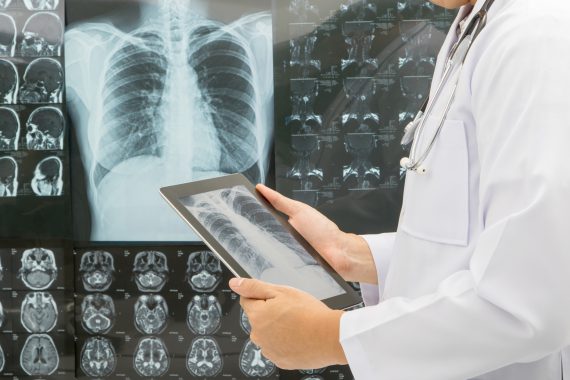Lack of GP time and workforce shortages a factor in late cancer diagnosis

Over 100,000 cancer patients are diagnosed too late for optimum chances of survival each year, calculations from Cancer Research UK have found.
Lack of Government action in overcoming the NHS’ understaffed workforce as well as GPs not having enough time to properly investigate are ‘large contributors’ to this figure, according to the charity.
Almost half of all cancers diagnosed in England are at stage 3 or 4 at time of diagnosis. Of these, approximately 67,000 people are diagnosed at stage 4, the most advanced, restricting the availability of treatment options.
Last year, the Government pledged to improve the number of people diagnosed with early-stage cancer – aiming to jump from two in four being diagnosed early, to three in four by 2028. In light of this, Cancer Research UK has concluded that this is only achievable if an extra 100,000 patients are diagnosed early each year by 2028.
Nine out of 10 bowel cancer patients will survive if the disease is caught at its earliest stage, but this declines to just one in 10 surviving for at least five years if they aren’t diagnosed until the latest stage.
Cancer Research UK’s director of early diagnosis, Sara Hiom, told Pulse: ‘GPs are most people’s first port of call when they notice symptoms, so they are vital to diagnosing early stage cancer. GPs have been referring more patients with suspected cancer for investigation, which is important for early diagnosis.
‘But as their workloads grow and the number of GPs declines, they have less and less time with patients. This makes it more difficult for GPs and patients to have the right conversations and therefore onward referral can be delayed.’
She added: ‘It’s concerning that so little progress has been made in recruiting more GPs. Recruiting more staff such as clinical pharmacists and physician associates should help, but the NHS needs more GPs if the Government’s ambitions on early diagnosis are going to be met.’
Cancer Research UK also estimates that by 2027, the NHS needs:
- An additional 1,700 radiologists – increasing the total to nearly 4,800,
- To almost triple its amount of oncologists – increasing the total from 1,155 to 3,000,
- Almost 2,000 additional therapeutic radiographers – increasing the total to almost 4,800.
The charity said: ‘There are lots of things that can influence how early or late someone is diagnosed, but workforce shortages are a large contributor.
‘There just aren’t enough of the right staff available on the ground now, and there are no plans to significantly increase the numbers needed to transform the health service.’
It was recently announced that fewer cancers are being diagnosed as emergencies. However, cancer has also been named the biggest cause of difference in life expectancy in certain deprived areas.
Pulse October survey
Take our July 2025 survey to potentially win £1.000 worth of tokens

Visit Pulse Reference for details on 140 symptoms, including easily searchable symptoms and categories, offering you a free platform to check symptoms and receive potential diagnoses during consultations.










